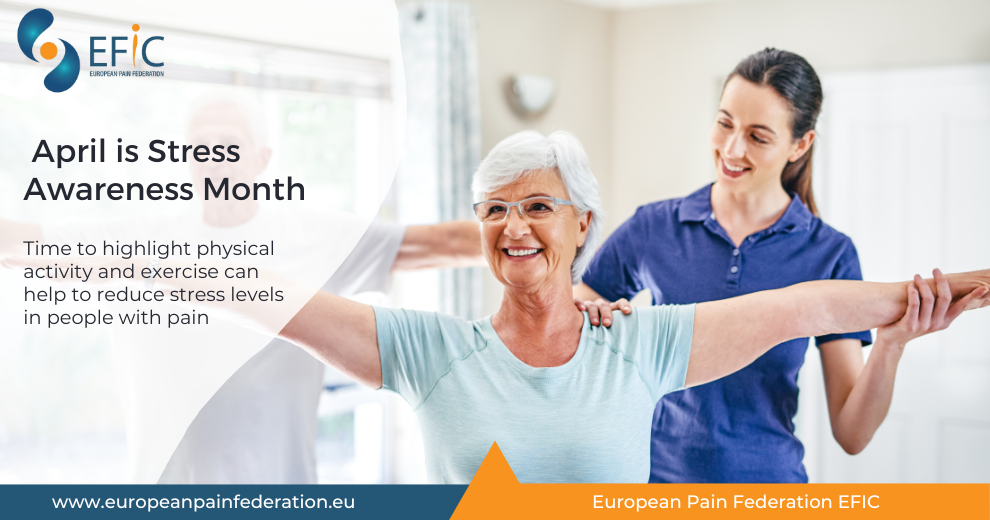Stress Awareness Month is observed every year in April. The goal of this month is to raise awareness about the causes and effects of stress on individuals, organizations, and society as a whole. It is a time to highlight the importance of stress management, self-care, and relaxation techniques in reducing stress levels and improving overall health and well-being.
Pain and stress are closely connected, as stress can both cause and exacerbate pain. Stress is the body’s response to physical or emotional pressure, and it can trigger a range of physical and psychological responses that can contribute to pain. When we experience stress, the body releases a hormone called cortisol. Cortisol can increase inflammation in the body, which can exacerbate pain and make it more difficult to manage. Additionally, stress can cause muscle tension, which can lead to stiffness and pain in the neck, shoulders, and back.
Furthermore, stress can also lead to the development of chronic pain conditions. Studies have found that individuals who experience high levels of stress are more likely to develop conditions such as fibromyalgia, chronic headaches, and back pain. Conversely, pain can also be a source of stress. Chronic pain can be physically and emotionally exhausting, and it can impact an individual’s quality of life and ability to perform daily activities. The stress caused by chronic pain can also lead to anxiety and depression, which can further exacerbate the pain.
It’s important to address both pain and stress in order to manage chronic pain effectively. Strategies such as mindfulness, relaxation techniques, and cognitive-behavioral therapy can help reduce stress and improve pain management. Additionally, regular exercise and physical activity can help reduce stress and promote pain relief. Overall, the connection between pain and stress highlights the importance of a holistic approach to pain management that addresses both physical and emotional factors. By managing stress and addressing the underlying causes of pain, individuals can improve their quality of life and reduce the impact of chronic pain.
If you are an #EFICAcademy member, watch these related sessions now on our education platform:
Psychological and social common assessment – https://academy.europeanpainfederation.eu/course/view.php?id=17
Mindfulness – https://academy.europeanpainfederation.eu/course/view.php?id=74
Complex and multidimensional nature of pain – https://academy.europeanpainfederation.eu/course/view.php?id=35
Psychologically informed practice – https://academy.europeanpainfederation.eu/mod/lesson/view.php?id=586
Making sense of back pain – https://academy.europeanpainfederation.eu/mod/lesson/view.php?id=187
To find out more, visit https://www.stress.org.uk/national-stress-awareness-month/
